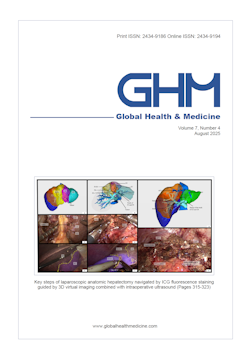Global Health & Medicine 2022;4(6):322-326.
Long-term sequelae of different COVID-19 variants: The original strain versus the Omicron variant
Liao XJ, Guan Y, Liao QB, Ma ZH, Zhang LP, Dong JK, Lai XJ, Zheng GQ, Yang SM, Wang C, Liao ZH, Song S, Yi HY, Lu HZ
Although Omicron appears to cause less severe acute illness than the original strain, the potential for large numbers of patients to experience long COVID is a major concern. Little is known about the recovery phase in cases of Omicron, highlighting the importance of dynamically monitor long COVID in those patients. Subjects of the current study were patients available for a three-month follow-up who were admitted from January 13 to May 22, 2020 (period of the original strain) and from January 1 to May 30, 2022 (period of Omicron). Twenty-eight-point-four percent of patients infected with the original strain had long-term symptoms of COVID-19 and 5.63% of those infected with the Omicron strain had such symptoms. The most common symptom was a cough (18.5%), followed by tightness in the chest (6.5%), in patients infected with the original strain. Fatigue (2.4%) and dyspnea (1.7%) were the most commonly reported symptoms in patients infected with the Omicron strain. The respiratory system is the primary target of SARSCoV-2. Supportive treatment is the basis for the treatment of respiratory symptoms in patients with COVID-19. Quality sleep and good nutrition may alleviate fatigue and mental issues. Further knowledge about a long-term syndrome due to Omicron needs to be discussed and assembled so that healthcare and workforce planners can rapidly obtain information to appropriately allocate resources.
DOI: 10.35772/ghm.2022.01069







